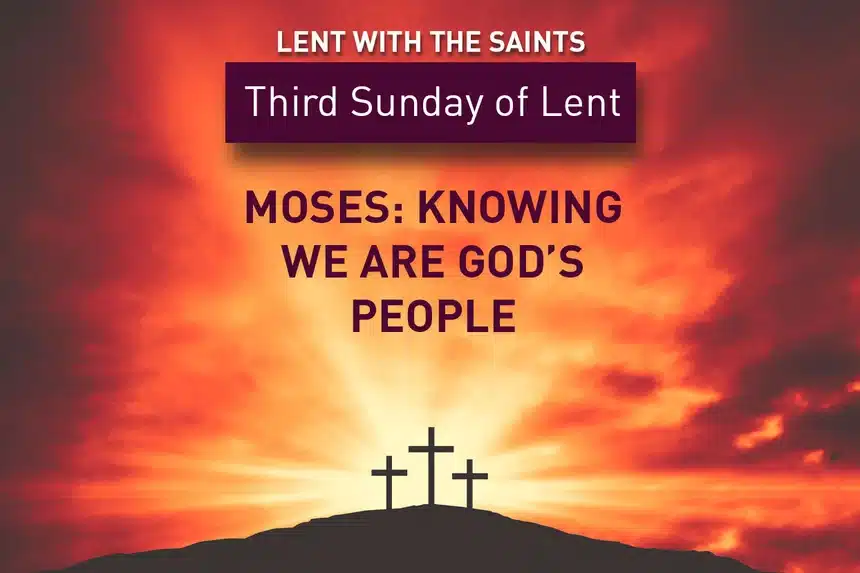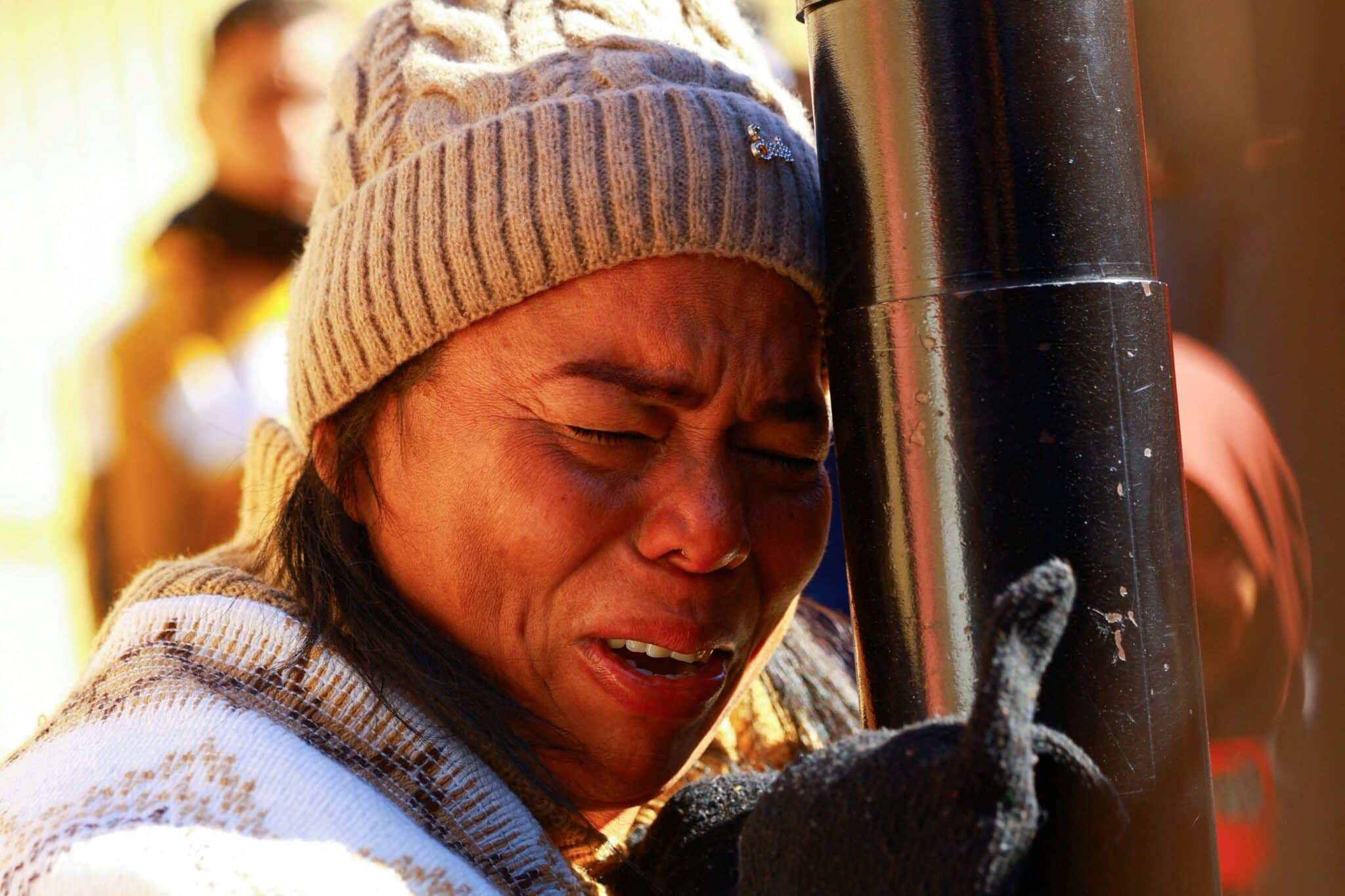Year A: Exodus 17:3–7; Psalm 95:1–2, 6–7, 8–9;
Romans 5:1–2, 5–8; John 4:5–42
Year B: Exodus 20:1–17; Psalm 19:8, 9, 10, 11;
1 Corinthians 1:22–25; John 2:13–25
Year C: Exodus 3:1–8a, 13–15; Psalm 103:1–2, 3–4, 6–7, 8, 11;
1 Corinthians 10:1–6, 10–12; Luke 13:1–9
The character of Moses is forever burned into the consciousness of a generation of moviegoers by Charlton Heston’s portrayal of him in The Ten Commandments. Moses strides through the film, leading his people out of Egypt, stretching his staff over a divided Red Sea, and bringing the tablets of the Law down from his encounter with God on the mountain.
We hear about many different dimensions of Moses in lenten readings drawn from the books of Exodus and Deuteronomy, and Moses returns the favor in a passage read on the first Sunday of Lent in the C Cycle of readings. In describing the ritual for offering first fruits from the harvest of the Promised Land, Moses says that the people must describe themselves thusly: “A wandering Aramean was my ancestor; he went down into Egypt and lived there as an alien” (Deuteronomy 26:5). He goes on to retell the story of the liberation of the Hebrew people from Egypt by God’s “mighty hand and an outstretched arm” (8). God has now settled the people in the Promised Land. As they enjoy the blessings of God’s covenant, they make an offering to remind themselves who has given them those blessings.
Lent is when we bring people to a new identity in Christ through baptism. Those already baptized renew that identity. Following Moses’ example, may we use this time to recall what God has done for us in Jesus.
Today’s Action
As a lenten activity, outline your family’s religious history and your place in it.
Prayer
God who names us as your people, never let us forget your mighty deeds on our behalf.
Bring those seeking baptism to life in you.
For the rest of us, renew our identity in Jesus, as his body, the church, in the world.
Amen.








